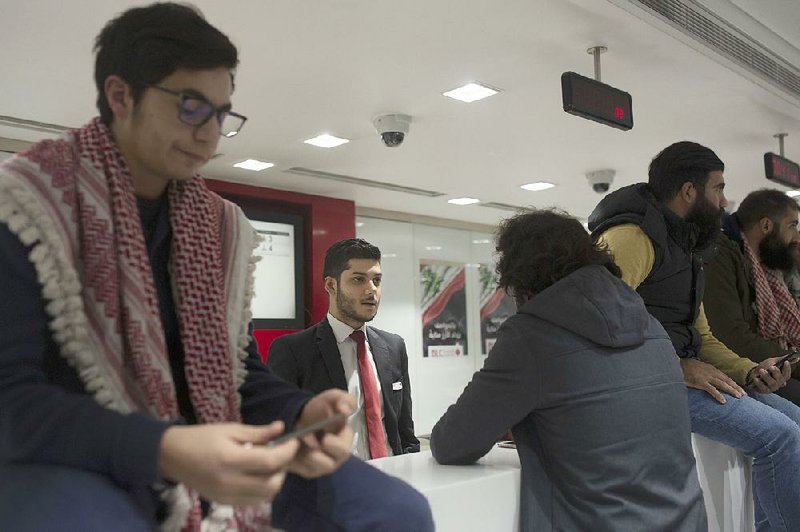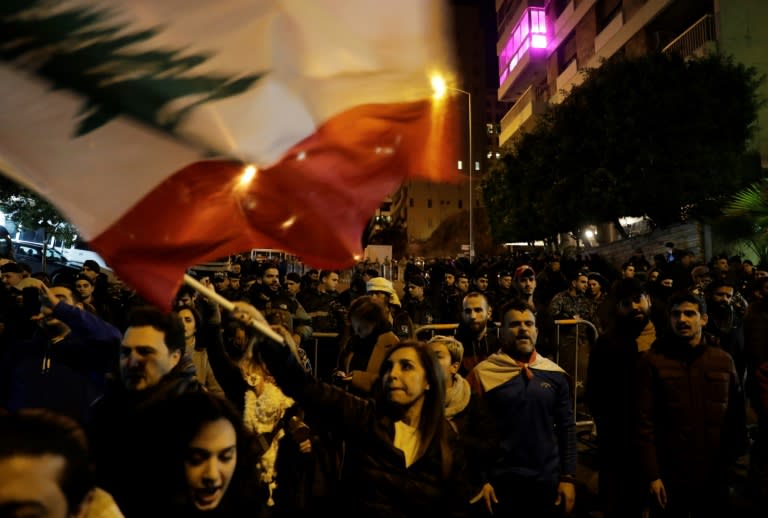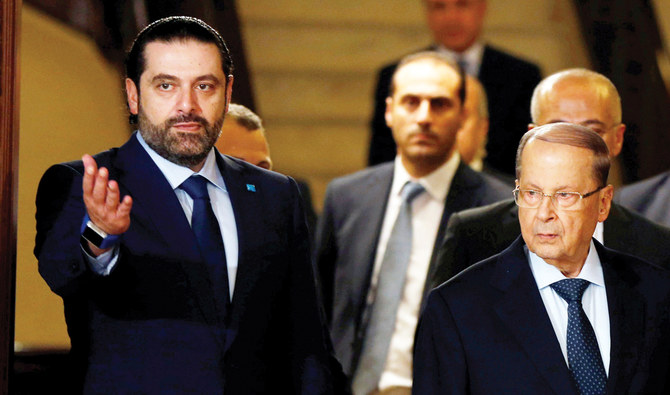
by MAYA ALLERUZZO The Associated Press — BEIRUT — Dozens of Lebanese protesters held a brief sit-in inside a bank in Beirut and another in the country’s south on Saturday, part of their focus on banking policies they complain are inefficient and corrupt. Lebanon is facing its worst economic crisis in decades, while protests against corruption and mismanagement have gripped the country since October. The local currency has lost more than 40% of its value after more than 20 years of being tied to the dollar. Banks are imposing unprecedented capital controls to protect their deposits amid a deepening confidence crisis. Meanwhile, layoffs and salary cuts are becoming the norm, while politicians argue over forming a new government.
Dozens of protesters entered a private bank in the commercial Hamra district in Beirut, protesting capital controls and insisting that no one would leave without the money they came for. Banks have put a withdrawal ceiling of $200 a week on most accounts, while totally blocking outside transfers. “Thieves! Thieves!” two dozen protesters chanted, some sitting on counters and others on the floor. Bank staff watched and security guards did not interfere. The protesters later helped a woman with a cane get to the second floor, again shouting that she wouldn’t leave until she got the money she needs. The protesters posted videos of their actions on a Twitter account linked to the protest movement.








